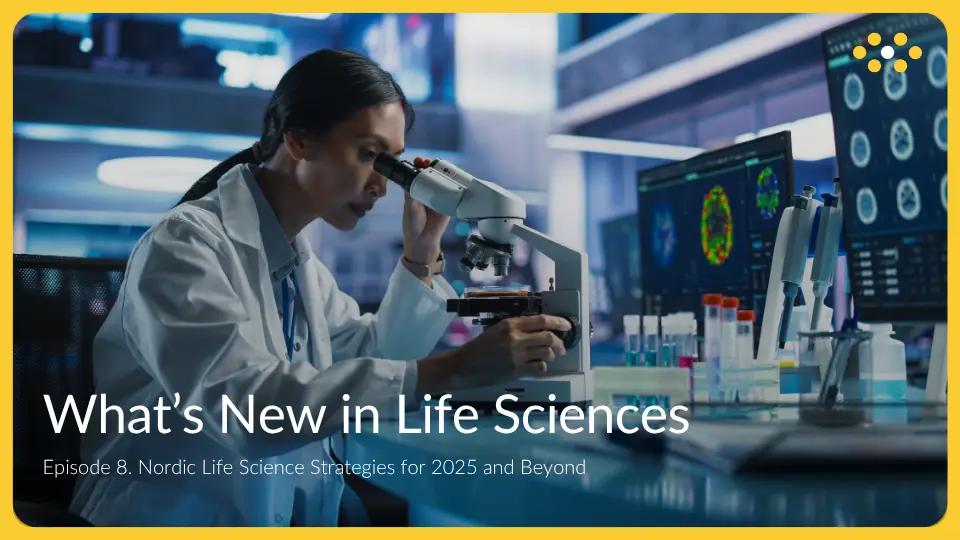Surgery assisted by AI or AI-driven diagnostics might sound like something from a futuristic film, but over the past few years, AI has been a key driver of innovation in MedTech. AI is not only beneficial for MedTech companies seeking a competitive edge and cost reductions, but also for healthcare providers who are struggling to maintain high patient service standards under increasing work pressure.
There are, of course, many advantages, such as faster and improved patient outcomes, personalised healthcare solutions, and greater operational efficiency. Nevertheless, important questions arise about the ethical challenges AI may present and why it’s important to hire the right specialists with AI knowledge to help companies mitigate these challenges.
Ethical Concerns around the Use of AI in MedTech
Sustainability
AI may offer powerful solutions to staff shortages, rising patient demands, and cost pressures, but its environmental impact raises serious ethical concerns. At the core of AI are data centres, which consume vast amounts of electricity. According to the International Energy Agency (IEA), global energy demand from AI is expected to rise sharply and unevenly across countries.
By 2026, data centres could use 80% more energy than in 2022, despite anticipated efficiency improvements. AI-specific data centres alone may add 90 terawatt-hours (TWh) of electricity consumption, equivalent to around 4% of the EU’s current usage, contributing 20% to the overall growth. The largest increases are projected in China and the United States, with estimated rises of 70 TWh and 60 TWh, respectively. This growing energy footprint challenges the sustainability of AI in healthcare and calls for urgent action to balance innovation with environmental responsibility.
To make AI in MedTech more sustainable, companies can optimize algorithms to reduce computational load and energy consumption, especially during model training and deployment. Shifting to greener data centres powered by renewable energy significantly lowers the carbon footprint of AI infrastructure. Additionally, adopting edge computing for local processing can minimize data transfer and energy use while maintaining data privacy.
Patient Safety
What happens if AI makes a mistake, if an operation fails due to an AI error? In such cases, assigning accountability becomes complex. This is why clear policies and strong human oversight are essential for any AI-driven activity in healthcare. According to a global report by Philips, many healthcare leaders have expressed concerns about the liability and accountability of AI-generated recommendations.
Medical companies developing AI-powered devices must also recognise their responsibilities. They need to implement robust safety measures, including legal frameworks, rigorous clinical trials, ongoing evaluation, and transparency throughout the AI lifecycle. Without these safeguards, the risks of AI failure could undermine trust and patient safety.

Algorithmic Bias
87% of healthcare leaders are concerned that data bias in AI could widen health disparities, as AI struggles to interpret complex, circumstantial situations. For example, due to the underrepresentation of minority populations in training datasets, AI may not always provide the best outcome for a patient depending on their ethnic and geographical background. This could lead to unintended discrimination.
To ensure safe usage, there is a growing push to make AI systems more transparent and interpretable for healthcare professionals, supported by continuous training and education. There is also strong support for ethical frameworks, including clear policies on responsible AI and data use. Cross-sector collaboration is essential to guide ethical development and implementation, helping AI to improve care without increasing inequality.
Affordability of AI MedTech
AI can reduce costs for companies and healthcare providers, but even here lies a paradox. The high cost of AI in MedTech raises ethical concerns about deepening healthcare inequality. Well-funded hospitals can afford advanced AI tools for diagnostics and treatment, while under-resourced systems often cannot, leaving patients in poorer regions with outdated technology or no access to such innovations.
This disparity risks creating a two-tier healthcare system where only the wealthy benefit from AI-driven care. Without policies to ensure equitable access, AI could reinforce existing gaps rather than close them.
Legislative framework
Due to the growing reliance on AI, there remains a gap in the legal framework. This is why policymakers, such as the European Commission, have been working to implement robust AI legislation. On 1 August 2024, the European Artificial Intelligence Act came into force, aiming to ensure the responsible development and deployment of AI across Europe. The Act includes a code of practice and sets out several requirements for AI use, such as risk-mitigation systems.
Non-compliant companies may face fines of up to 7% of global annual turnover for banned AI applications, 3% for other breaches, and 1.5% for providing false information. But these are not the only consequences, violating AI legislation can also lead to reputational damage, product delays, or even cancellations.
However, the process of implementing comprehensive legal frameworks is lengthy, which continues to leave a legal gap concerning the responsible use of AI.
Find the Best MedTech Specialists with Amoria Bond
To avoid legal penalties, overreliance on AI, and concerns such as data bias, MedTech leaders should invest in the right specialists who can help mitigate these risks. Expertise in AI ethics, regulation, and implementation may become one of the most in-demand skill sets in MedTech by 2025. But where can you find the ideal candidate for your organisation?
Rather than relying on lengthy processes and limited access to talent, partnering with a specialised recruiter can reduce both costs and time-to-hire. Additionally, employers can reallocate high internal HR costs to other areas such as R&D, leaving the screening and sourcing of candidates to experts with access to a wider talent pool.
Here are some time-consuming tasks that recruiters can take off your plate:
Identifying candidates across multiple channels
Screening CVs and checking references
Conducting pre-interviews with suitable candidates
Handling administrative tasks such as contracts

Progress Your Company with Amoria Bond
Amoria Bond understands the complex MedTech skills mix of niche knowledge and experience with interdisciplinary competences. Thanks to our international talent pool, award-winning services and thorough training programmes, our life sciences division can offer clients multiple suited candidates within tight deadlines.
Are you planning a MedTech project or do you need a life sciences specialist ASAP for a current one? Don’t hesitate to contact us to discuss how our tailored services can benefit your staffing goals!







